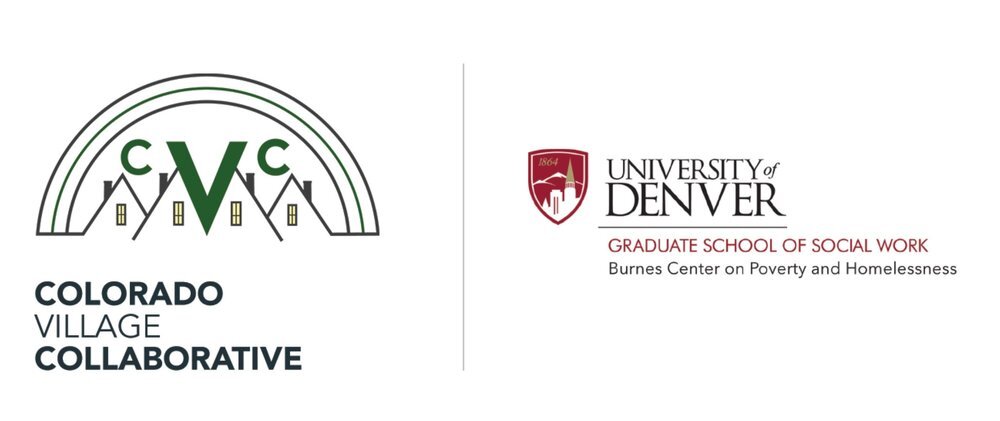Colorado Village Collaborative
A Cross-Sector Partnership
While the Barton Institute is not a traditional grantmaker, we support community members as they build projects that create safe community spaces where people can build lives with more opportunities to thrive.
Since early 2017, the Barton Institute has supported the Beloved Community Village, Denver’s first tiny homes village for people experiencing homelessness. Focusing on people who are not able to be served by the traditional shelter system and created by the Colorado Village Collaborative (CVC), the village has housed 18 people over the past two years in 11 cottages that surround a shared bathroom and kitchen facilities. Five of those people have moved on to permanent housing.
At the Barton Institute, we have long believed that this low-cost alternative has promise to expand to serve more people. In October 2019, the Denver City Council agreed – unanimously.
The City Council voted 11–0 to amend Denver’s zoning code to allow organizations that wish to establish tiny home villages to do so throughout the city, except on land designated as open space.
The Beloved Community Village expanded to 19 homes in early 2020 and late last year, CVC opened its second village, at Clara Brown Commons, this one focused on housing for women and trans women.
The Barton Institute continues to support the concept including funding for multiple evaluations of the approach by the Center on Poverty and Homelessness at the University of Denver Graduate School of Social Work to help support the Villagers and their partners in taking the model to scale. To see the results of the first evaluation, also funded by the Barton Institute, scroll down.
From July 2017 – April 2018 the University of Denver’s Burnes Center on Poverty and Homelessness conducted a comprehensive evaluation of Colorado Village Collaborative’s Beloved Community Village, Denver's first tiny-home village.
Executive Summary
The results from this evaluation, conducted by the Burnes Center on Poverty and Homelessness (Burnes), demonstrate that over the course of the first nine months, the Beloved Community Village (BCV) has been a success. In July 2017, when the evaluation began, there was no certainty that BCV would still be operational come May 2018. Yet, by all accounts, BCV is operational and widely considered a fully-functioning and productive community. Importantly, understanding BCV’s “success” is complex given the developmental process of an alternative solution to homelessness using an intentional community model, which does not arrive at a fixed destination but rather continues to evolve, change, and grow. However, all reported findings indicate that BCV is a demonstrably positive effort operated and supported by an intentional community of individuals largely working for the betterment of those involved, chiefly those living in the Village.
Key Findings
Beloved Community Village has had a demonstrably positive impact on local community
• Previously underserved people are housed
• Neighbors report very few concerns with village
• No increase in crime near the village
Improved outcomes for villagers in the areas of:
• Education & employment
• Health & well-being
• Reduction in theft
Villagers report:
• An increase in social capital
• Increased feelings of safety





